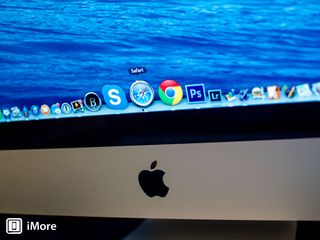Happy XIIIth birthday, OS X!

On March 24, 2001, Apple released Mac OS X v10.0. Codenamed "Cheetah," the new Mac operating system represented a radical departure from what came before it. OS X would help to mold Apple into what it's become today and it would also lay the groundwork for the enormous success Apple saw with mobile devices.
In the late 1990s Apple had a problem. Its operating system was showing its age. The software had gone through nine major revisions over the years and had been steadily improved and refined over the years.
But there were problems. After more than a decade of development, the seams in Mac OS were showing - the software didn't support things like protected memory, which keeps applications from killing the entire system and requiring a restart, or preemptive multitasking, which enables the computer to more efficiently handle requests from multiple applications at the same time.
Apple had come up with what it hoped would be solutions to these problems multiple times over the years. Apple's Taligent program, which because a joint project with IBM, sought to solve this and other issues, but it would run out of steam. Later efforts with code names like Copland and Gerswhin would come to light, again to shore up the problems apparent in Mac OS and give it a direction for the future. None of these panned out.
Eventually Apple bought Steve Jobs' computer maker NeXT. NeXTSTEP, the operating system NeXT had developed for its own computers, ultimately served as the basis for OS X. The rest, as they say, is history.
When the public beta of OS X debuted in September of 2000, it was very rough around the edges. It cost about $30 to buy, and it introduced users to a new design language - a transition away from the traditional Mac OS interface to something that Apple called "Aqua." It was most certainly not ready for prime time, but that didn't stop many users from buying it and trying it out. Users became familiar with some interface elements we still have today, like the Dock, and apps that we still use - Preview, TextEdit and Mail were all part of that initial release.
Apple's first major release of OS X happened on March 24th. Mac OS X 1.0 cost $129, and it sported a lot of improvements over the public beta release. It still was plagued with problems - slow performance, bugs, missing features. There were some glaring show-stoppers, too - fatal bugs that would cause a kernel panic, requiring you to restart the computer. There was no DVD playback capability in that initial release, and you couldn't burn CDs either - features already present in Mac OS 9.
Master your iPhone in minutes
iMore offers spot-on advice and guidance from our team of experts, with decades of Apple device experience to lean on. Learn more with iMore!
Even Apple recognized that Mac OS X 10.0 had problems - beyond maintenance updates that slowly reintegrated missing features and functionality, improved performance and reliability, Apple ultimately decided to make the next version, 10.1 (codenamed "Puma"), a free update for anyone running 10.0. That'd be the last time Apple gave anyone a freebie until OS X 10.9, "Mavericks," came out last fall.
Cheetah was deeply flawed. Many Mac users avoided it, and continued using "classic" Mac OS 9 for a while longer. But Cheetah's importance in the evolution of the Macintosh cannot be overstated: Mac OS X 10.0 gave Apple and Mac developers a solid enough foundation to get the Macintosh started towards a bright future. It wouldn't be too long before Mac OS X went from being a curiosity to being stable and solid enough for everyone to migrate to.
The iMac, introduced several years earlier, had been instrumental in turning Apple's fortunes around - from a joke, a sad footnote in computer history, to a thriving and growing company. Mac OS X would give Apple another huge push forward - a modern operating system for modern computers, and a clear sign that Apple was in it for the long haul.
Mac OS X also laid the groundwork for what would ultimately propel Apple to where it is today: the most valuable company in the world today (based on market capitalization). How? By serving as the basis for iOS, which powers all of Apple's iPhones, iPads and iPod touches. Even if OS X went away tomorrow, it's had a transformative impact on the world of technology that's been, by any measure of the word, truly disruptive.
Any ideas one where the next decade and a third should take them? Sound off!
Most Popular






